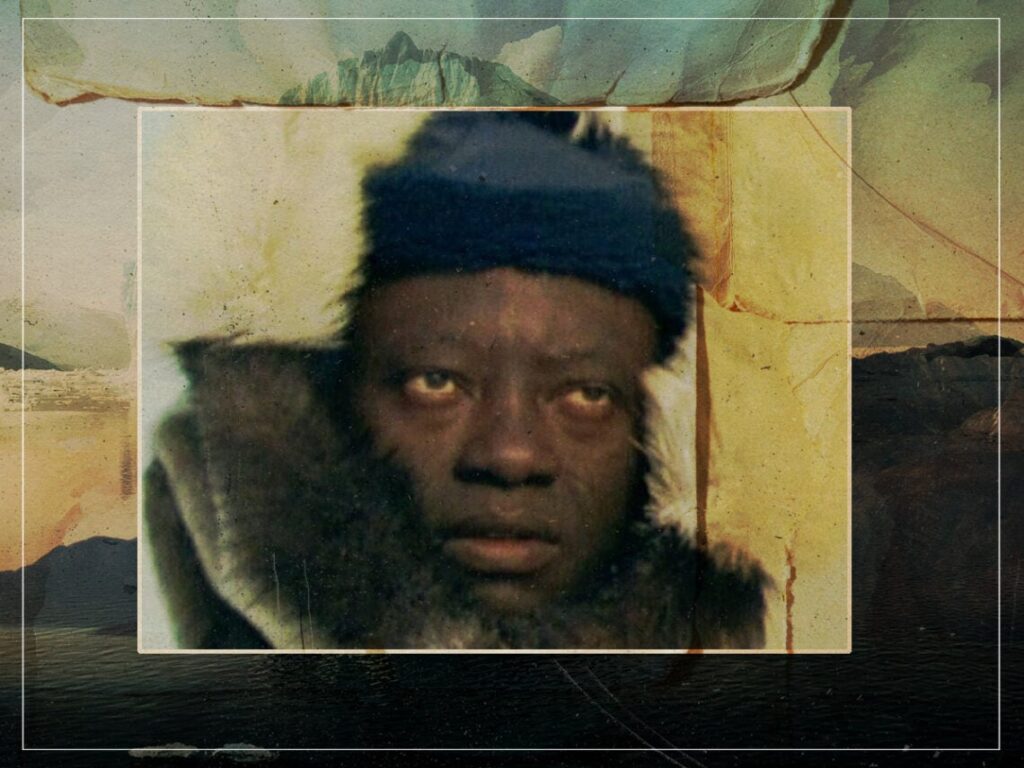Tété-Michel Kpomassie: the first African in Greenland
 Posted On
Posted On
(Credits: Far Out / YouTube Still / BBC / Visit Greenland)
June 27th, 1965. A boat from Copenhagen begins to pull into a dock in Qaqortoq, Greenland. Locals are lined up along the shore as coffee is stuffed into the boat, along with alcohol and other groceries. Also in there is Tété-Michel Kpomassie, completing an eight-year journey from Togo to Greenland and moments away from becoming the first-ever African to make it to the northernmost country.
Giving up beaches and heading towards glaciers, leaving behind spicy seasoned food and prepared for boiled seal, Kpomassie had felt a spiritual connection with Greenland for some time. His obsession came about thanks to a book he found in Africa, Les Esquimaux du Groenland à l’Alaska (which translates to The Eskimos from Greenland to Alaska).
He was recovering from a tree-top run-in with a snake, so he had plenty of time to read the alluring new book that had presented itself in front of him at his local missionary. He dissected the book from cover to cover before putting it down, staring at the beach before him, and picking it up again. He became lost in the idea of Greenland and was adamant that he had to go there. He ran away from home at 16 and never looked back.
“I picked it up, not understanding the words in front of me, but the man on the cover was smiling right at me. We had a connection, an exchange,” he said, remembering the first time he saw the book, “From the minute I completed it, I never stopped thinking of Greenland, my country. It was resonating inside me. I don’t understand it. But a magnet was pulling me, so I packed my bags and left.”
Of course, for a lot of us, the idea of leaving behind the warm weather of Togo for thick snow seems ludicrous, but Kpomassie’s desire ran a lot deeper than just the idea of Greenland as a country. Political issues were plaguing Africa, and he was desperate to escape them.
“I had been made to hate my culture because of what was happening in Africa,” he said, “Christians tried to convert my father, African names were banned, and we were forced to take Christian ones before being admitted into schools.”
The pictures and the idea of adopting a new culture in his spiritual home were enough to keep him going on what became an eight-year journey. It saw him travel across different countries, cross oceans and make way for himself using nothing but his own intelligence and relying on the kindness of strangers. Brief stops are made in Morocco, Algeria, Ghana, and Senegal.
The moment Kpomassie got to Greenland, he was hit with a sad fact. Granted, he was excited to meet the people, better understand their culture, and try to adopt a new way of life himself. However, there were also some harsh realities that he had to come to terms with, and one of the most glaringly obvious was the fact that colonisation is not limited to one continent.
The differences between his birth home and his spiritual home were clear, but the similarities were harrowing. Also hit by the effects of colonisation, Kpomassie realised arriving at his destination was only the beginning of his journey. “Its culture was already being diluted by European influences. They worshipped their sea god, but here missionaries undermined local beliefs, too.”
What he saw in the book was totally different compared to what he saw in front of him. “There were no igloos, no hunters or huskies… Everyone was always drinking beer and coffee and buying Danish food from the department store,” he recalled, “I asked my hosts where the Inuit igloos and seal hunters were. I was told to go to the far north.”
When he arrived there, he felt as though he had finally, truly, arrived. As the locals plunged into day and night effortlessly, and he got to experience the way of life depicted within the pages of the books he had become so obsessed with, Kpomassie had found his spiritual home. Over eight years’ worth of travel, the African runaway took solace in the ice surrounding him.
[embedded content]


